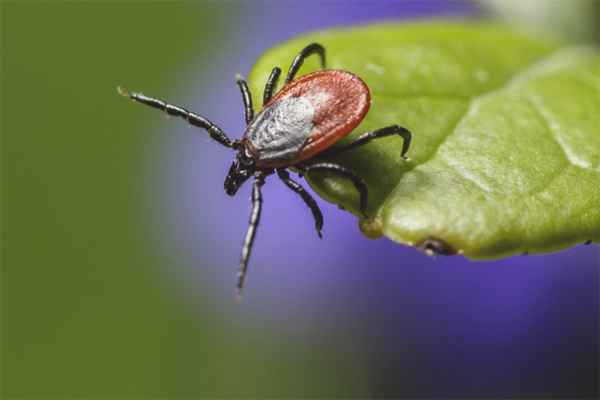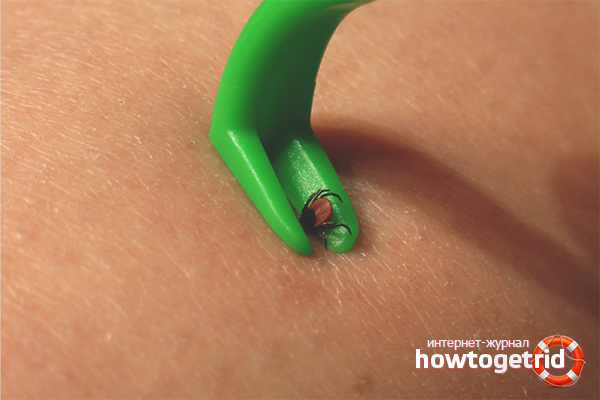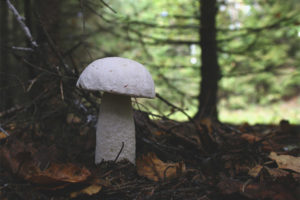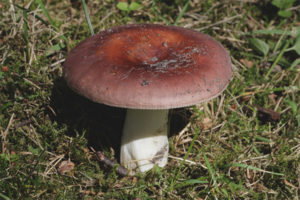The content of the article
With the arrival of warm days, more and more people tend to nature - warm themselves, breathe fresh air, spend time with good company. Especially on the May holidays. On this long weekend, people are planning picnics with barbecues, trips to the cottages, hiking in the woods. Before such events it is very important to ensure that you are not bitten by ticks. They, as a rule, live in thick grass, easily get over to a person’s clothes, and then look for a stretch of skin with open skin in order to dig into their thin proboscis. The person does not feel the bite, as the tick, along with saliva, releases painkillers into the wound. The insect needs blood for feeding, but why can a tick be dangerous? How does its bite affect the human body?
Danger of ticks to humans
By itself, the wound after a tick bite is small, it usually heals quickly.But penetrating under the skin of the trunk, a tick can infect a person with serious infectious diseases. These include tick-borne paralysis, tick-borne encephalitis, typhus, viral fever, Lyme disease, etc. Most diseases affect the functioning of the nervous system, lethargy, nonspecific reactions to external pathogens may appear. Often such diseases lead to serious consequences and even death. That is why tick bites should be avoided. Indeed, not all insects are infected - some of them are absolutely safe. But let us not risk and allow ourselves to bite to check if the tick is sick? Anyway, going out into nature, you need to be able to protect yourself from these dangerous insects.
How to dress for nature
If you go to work in the country, on mushrooms, on a picnic or for berries, it is very important to dress correctly. Proper clothing will protect you from ticks by 90%.
Clothing must be completely closed. Be sure to wear closed shoes - no slippers and sandals. Pants better to fill in socks or have a tight-fitting cuff, so that the tick does not penetrate under the leg. The upper part of the clothes is tucked into the pants so that the tick has no access to the skin. Jackets and sweaters should be on the lock, but not on the buttons - the tick can easily penetrate into the gap between them.Choose clothes of light tones, in which case the tick was easy to detect on the fabric.
Ticks fall on a person from grass and shrubs, but this does not mean that the head does not need to be closed. Wear caps, hats, and the hair while you need to collect under a hat. The mite crawls on the clothes up, in search of an open area of skin. In addition, mites usually bite the body in the place where the skin is thinner. This is the groin area, the area behind the ears, the chest, the inner fold of the elbow. These areas should also be particularly protected. Button up your shirt collar so that the tick cannot reach you from above. You can hang a thin gauze around your neck to protect this area of the skin.
On walks, it is important to regularly inspect yourself and friends for finding ticks on clothes. Often, the insect can catch even before he finds his livelihood.
How to protect against ticks
Here are some tips to help you protect yourself from the bite of this harmful insect.
- If for the first time this season you have arrived at your dacha, the first thing you need to do is get rid of all the tall grass - ticks live there most often.
- Be sure to treat the skin and clothing surface repellents - special substances that scare ticks and other insects. They are also effective against mosquitoes. They can be sold in the form of creams, but the most convenient to use sprays.
- Repellents dissolve in water, so after bathing, put them back on your skin. The same should be done after rain. Be sure to pay attention to the packaging - for how long the product is valid. After the specified time, repeat the application.
- Blood-sucking insects do not like the harsh odors of cinnamon, camphor, cloves. You can make a strong decoction on these spices and sprinkle their clothes with a spray bottle. If there is no time for such events, just put a handful of spices in your outerwear pocket. They are afraid of ticks and the sharp smell of the asterisk balsam. It has many essential oils that repel an insect. You can apply a balm point on some areas of the skin - behind the ears, on the wrist, in the neck and ankles.
- It often happens that ticks, not finding another open area on the skin, bite behind the neck, ears, face. In this case, you need to make a special mask.Boil a piece of gauze in cinnamon decoction or just sprinkle it with cologne. Tie gauze on the face and ticks will not come to you and close.
- If you are going to camp in nature, opt for open areas without high grass and bushes nearby. It is better to choose the edge or elevation away from the trees. If possible, stay in coniferous forests. The special smell of resin drives ticks away, in such places there are practically none. In addition, the smell of pine needles is very useful for the body.
- After you camped, enclose this place around tansy, wormwood, or other grass with a strong odor. Suitable and blooming bird cherry.
- Walking through the woods, try to walk in the middle of the path, do not climb into the bushes and high grass. Most often, the tick sits on the clothes, if you collect wild rose and berries from tall bushes.
- Separately, I would like to say about pets. If you go out into nature, the dog will probably start exploring everything around. To protect it from insects, spray the coat with mites. If you live in a country house, regularly review your pet to protect your pet from a tick.
- Returning home from outdoor recreation, it is very important not to bring ticks to your apartment. This is very dangerous, especially if you have small children. Often, the tick falls into a city apartment with wildflowers or brooms that you have gathered for a bath.
- When you get home, undress and look at yourself completely. Especially in places with thin and delicate skin. Carefully comb your hair with a fine-tipped comb. Shake the garment thoroughly and wash at 90 degrees. If you find a tick, do not press it with your hands - the infected insect's blood can get into your body even through a minor wound. Press on the insect with something hard, since ordinary cotton may not be enough - ticks have a thick shell.
- If you often go to nature or your work involves staying in hazardous areas, it makes sense to be vaccinated against tick-borne encephalitis. Vaccination is done in three stages and protects the person completely.
These simple tips and rules will help you make your vacation easy and carefree.
First aid for tick bites
If you find on the body of a sucked tick - do not rush to tear it.The fact is that his proboscis is a screw-in bolt with a thin thread. When a tick is pulled out, the proboscis can come off and remain in your body. To avoid this, the tick must be carefully removed, turning it around its own axis. The easiest way to do this is with a special plastic device that looks like a fork with two teeth. Mites hook up so that it is between these teeth and gently scroll. If the tool is not at hand, you can make a small loop of thread and throw it on the insect. When the loop is tightened, in the same way extract the tick from the wound.
Do not pour oil on the insect. Deprived of air, the tick can burp into the wound and infect it with pathogenic microbes. After removing the tick, it is very important to treat the wound with antiseptic compounds, in extreme cases, with vodka. Take the tick to the lab to check for disease. If the tick is infected, you will need to be vaccinated against a particular disease. If immunoglobulin is vaccinated on the first day after a tick bite, the encephalitis virus will be suppressed.
Camping, fun company, active games, fresh air and kebabs - this is an event that we have been waiting for all the long and cold winter.In order not to spoil the rest and enjoy nature, you need to take care of protective measures against ticks in advance. And then you will not think about this insidious insect. Let the thoughts be occupied with something more important!
Video: how to protect yourself from ticks












To send